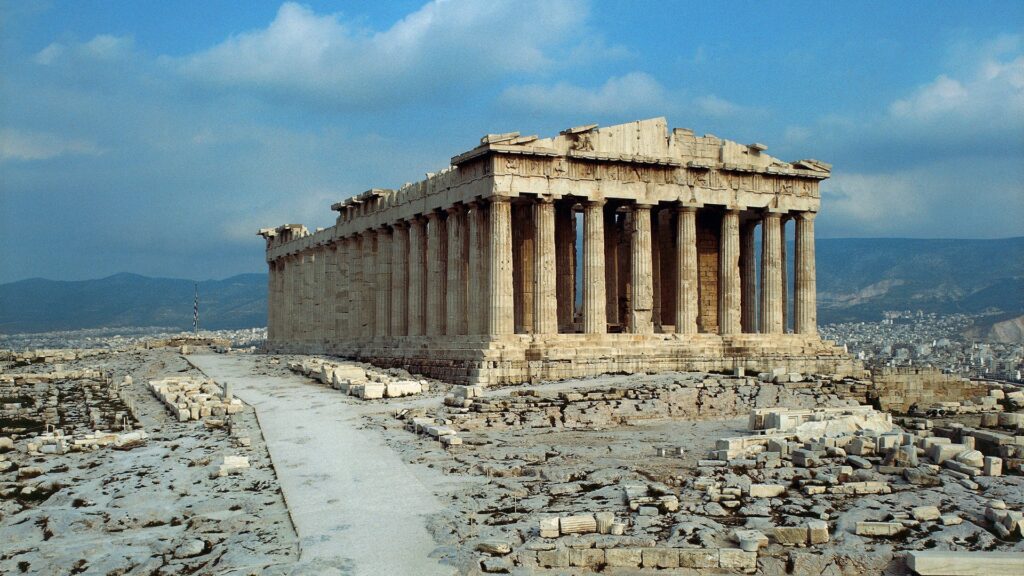
Ancient Greece: A Comprehensive Overview
Introduction
Ancient Greece, one of the most influential civilizations in history, flourished from around the 8th century BCE to approximately 600 CE. Known for its profound contributions to politics, philosophy, art, and science, Ancient Greece laid the foundation for much of Western civilization. This article provides a detailed exploration of Ancient Greece, covering its geography, history, culture, and enduring legacy.
Geography and Early Civilizations
The Geography of Ancient Greece
Ancient Greece was located in southeastern Europe, encompassing the Balkan Peninsula and numerous islands in the Aegean and Ionian Seas. The region’s mountainous terrain led to the development of isolated city-states, each with its unique government and culture. The sea facilitated trade and cultural exchange, fostering the spread of Greek ideas and influence.
Early Greek Civilizations
Before the classical period, Greece was home to the Minoan and Mycenaean civilizations. The Minoans, based on the island of Crete (circa 2600-1100 BCE), are known for their advanced architecture, vibrant art, and complex society. The Mycenaeans, who inhabited mainland Greece (circa 1600-1100 BCE), are famous for their role in the Trojan War, as recounted in Homer’s epic poems, the Iliad and the Odyssey.
The Archaic Period (circa 800-500 BCE)
The Rise of the Polis
The Archaic Period saw the emergence of the polis, or city-state, as the fundamental political unit of Ancient Greece. Each polis consisted of a city and its surrounding countryside. Key city-states included Athens, known for its democratic government, and Sparta, renowned for its military discipline.
Colonization and Trade
During this period, the Greeks established colonies throughout the Mediterranean and Black Seas, driven by the search for arable land and trade opportunities. These colonies facilitated the spread of Greek culture and economic exchange.
The Classical Period (circa 500-323 BCE)
The Persian Wars
The early 5th century BCE was marked by the Persian Wars, a series of conflicts between Greek city-states and the Persian Empire. Key battles included the Battle of Marathon (490 BCE), where the Athenians achieved a surprising victory, and the Battle of Thermopylae (480 BCE), where Spartan King Leonidas and his men heroically resisted the Persian forces. The Greek fleet’s decisive victory at the Battle of Salamis (480 BCE) turned the tide in favor of the Greeks.
The Golden Age of Athens
Following the Persian Wars, Athens experienced a period of unparalleled cultural and intellectual achievement known as the Golden Age. Under the leadership of Pericles (circa 495-429 BCE), Athens became a center of art, architecture, drama, and philosophy. The Acropolis, adorned with structures like the Parthenon, and the works of playwrights such as Aeschylus, Sophocles, and Euripides exemplify this era.
Athenian Democracy
Athens is celebrated for developing one of the earliest forms of democracy. Citizens (excluding women, slaves, and foreigners) participated directly in decision-making through the Assembly. This system laid the groundwork for modern democratic practices.
The Peloponnesian War (431-404 BCE)
Causes and Conflict
Rivalry between Athens and Sparta, exacerbated by Athens’ growing power and imperial ambitions, led to the Peloponnesian War. This protracted conflict, chronicled by the historian Thucydides, ultimately resulted in Sparta’s victory but weakened all of Greece.
Consequences of the War
The Peloponnesian War had devastating effects on the Greek city-states. The prolonged fighting drained resources, fostered political instability, and led to a decline in Greek power and influence. The war also marked the end of the Golden Age of Athens.
The Rise of Macedon and Alexander the Great
Philip II of Macedon
In the aftermath of the Peloponnesian War, the Kingdom of Macedon, under the leadership of Philip II (reigned 359-336 BCE), rose to prominence. Philip reformed the Macedonian army and utilized diplomacy and military prowess to dominate the Greek city-states.
Alexander the Great
Philip’s son, Alexander the Great (356-323 BCE), embarked on a series of conquests that created one of the largest empires in history. By the time of his death, Alexander had conquered the Persian Empire and extended Greek influence as far as Egypt and India.
Hellenistic Period
Alexander’s conquests spread Greek culture across a vast territory, leading to the Hellenistic Period. This era saw the fusion of Greek and Eastern cultures, advancements in science and the arts, and the establishment of cities like Alexandria in Egypt, which became centers of learning and culture.
Greek Culture and Society
Religion and Mythology
Greek religion was polytheistic, with gods and goddesses like Zeus, Hera, Poseidon, and Athena playing central roles in myths that explained natural phenomena and human experiences. Religious festivals, such as the Olympic Games, were integral to Greek culture.
Daily Life
Daily life in Ancient Greece varied significantly between city-states and social classes. In Athens, free citizens engaged in politics, philosophy, and the arts, while women generally had limited public roles. In Sparta, both men and women were expected to prioritize the state’s needs, with men undergoing lifelong military training and women managing households and estates.
Education and Learning
Education was highly valued in Ancient Greece, particularly in Athens. Boys received formal education in subjects like rhetoric, philosophy, and athletics, preparing them for participation in civic life. In contrast, Spartan education focused on military training and discipline.
Greek Achievements and Legacy
Contributions to Philosophy
Greek philosophers, such as Socrates, Plato, and Aristotle, made profound contributions to Western thought. Socrates developed the Socratic method of questioning, Plato founded the Academy and wrote influential dialogues, and Aristotle’s works on logic, ethics, and natural sciences shaped subsequent intellectual traditions.
Advancements in Science and Mathematics
Greek scholars made significant advancements in science and mathematics. Euclid’s Elements laid the groundwork for geometry, Archimedes made groundbreaking discoveries in physics and engineering, and Hippocrates is often regarded as the “Father of Medicine.”
Artistic and Literary Legacy
Greek art and literature have left an enduring legacy. The sculptures and pottery of Ancient Greece exemplify classical ideals of beauty and harmony. Greek drama, with its tragic and comic plays, continues to be performed and studied for its insights into human nature and society.
Conclusion
Ancient Greece, through its city-states, philosophy, art, and science, laid the foundations for much of Western civilization. The legacy of Ancient Greece is evident in modern democratic practices, philosophical thought, scientific inquiry, and artistic expression. The achievements of this remarkable civilization continue to inspire and influence the world today.

